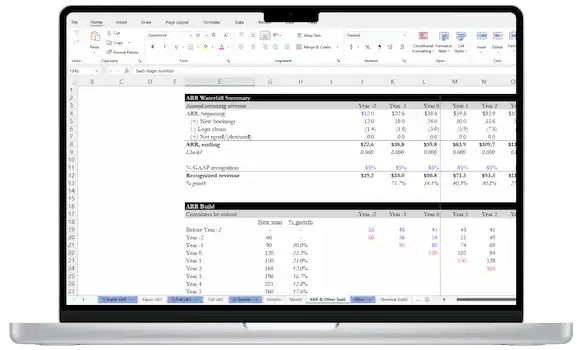Home
>
Resources
Learn about two popular forms of private investing and how they are different

By Mike Hinckley
Expert Bio
Table of Contents
Add a header to begin generating the table of contents
The private equity and venture capital industries are very different; and yet, they share a number of similarities.
This can make things quite confusing if you’re interested in pursuing a career in either sector.
In this article, I’ll provide definitions of each. I’ll also discuss key similarities and differences between two, especially with an eye toward helping you determine which sector might be right for you.
Is Venture Capital The Same As Private Equity?
Put simply, no. Venture capital is not the same as private equity.
However, you can be forgiven if you have some confusion.
In a general sense, “private equity” is a term that means “firms that invest in privately-held companies.” In this sense, venture capital could be considered a sub-sector within private equity which would include all types of private investing (e.g. not just VC, but also growth equity, fund of funds, etc).
However, over time, the term “private equity” has become synonymous with the most common or notable subclass of private equity investor — a leveraged buyout investor.
In popular usage, now when people say “private equity” they tend to mean this specific meaning (leveraged buyout investors who use lots of debt to purchase mature companies) rather than the generic meaning (investors in privately held companies).
Similarities Between Private Equity And Venture Capital
Here are the primary shared attributes of private equity and venture capital models:
- Invest in private companies – as discussed, both types of firms invest in companies in private markets. Yes, sometimes private equity firms will purchase public companies, but after the transaction the companies are no longer publicly traded
- Similar business model & fee structure – both private equity and venture capital firms invest capital on behalf of others (e.g. typically pension funds, family offices, etc.); they typically earn fees in the same way (e.g. 2% management fee and 20% carry) and they are structured in a similar way
- Investor base – many top venture capital firms and private equity firms invest capital on behalf of the same “limited partners”
Differences Between Private Equity And Venture Capital
While private equity firms may look like venture capital firms, there are many key differences to be aware of:
- Stage of investment target – Perhaps the most obvious difference is that most privat equity firms invest in mature companies, which typically have low growth but stable cash flow, whereas venture capitalists invest in early stage companies that are dynamic and fast growing
- Sector focus – Most venture capital firms invest in technology, biotech, cleantech, and other innovative industries; private equity firms tend to target more stable industries that generate cash flow and have historical track record
- Use of debt – Most private equity transactions are financed using high amounts a debt, whereas venture capital investors focus on equity investments to support earlier stage companies
- Acquisition percentage – Venture capitalists typically purchase a minority ownership stake (e.g. 20-30%), while private equity investors typically purchase a majority stake in the company (sometimes owning 100% excluding employee shares)
- Size of deals – given the different stage of company targets, venture capital investors often invest $5-20 million (depending on the funding round), while private equity deals are often much larger (as high as billions of dollars) since they target mature companies
- Risk-reward – By investing in younger companies, venture capitalists expect that many will fail and ultimately be worth zero (but a few will be worth a fortune), while private equity firms expect that nearly all of their investments will earn a positive return
- Personnel – Large PE firms nearly exclusively hire employees with investment banking or management consulting backgrounds and great undergraduate or MBA programs. However, VC firms aren’t as strict and often hire employees with more diverse backgrounds (e.g. founders, tech leaders, scientists, etc.).
(Article continues below)

- 66 lessons
- 12+ video hours
- Excels & templates
PREMIUM COURSE
Become a Private Equity Investor
Learn More
Industry Leaders Are Blurring Lines
One other source of confusion is that the lines between these two sectors are beginning to blur as many firms are starting to branch off into each other’s territories.
The largest private equity firms like Blackstone have started to launch venture capital funds, while venture capital firms like a16z and General Atlantic are starting raise growth or technology-focused private equity funds.
Bottom-line: leading investment firms that started out specializing in one investment strategy are increasingly launching new funds with different strategies in order to growth their offerings. The lines are blurring.
Is It Harder To Get Into Venture Capital Or Private Equity?
It is quite hard to land a position in both the venture capital and private equity sectors, but private equity is usually considered to be more difficult, since the hiring criteria tends to be more particular.
If you want to be hired at a private equity firm, you will need to have received a finance degree from a top university and earned a high GPA while studying there. You will also need to have a few years’ worth of experience in a top investment banking or management consulting firm.
If you don’t meet the above criteria, you’ll have to go through off-cycle processes and try to land a job at a smaller private equity firm. While you might not earn as much, you will at least have a foot in the door of the private equity world.
It is quite a bit easier to break into the venture capital industry. You won’t need specific experience in investment banking either. It’s more important that you bring unique experiences, knowledge of technology, a strong network and an ability to win deals in venture capital.
For more, check out my full guides on how to get into private equity and how to get into venture capital.
What Makes More Money, Private Equity Or Venture Capital?
Generally speaking, those who work in private equity earn more than venture capitalists. This is because the fund sizes are much larger in private equity.
There are three components to compensation, whether you are working for a private equity firm or a venture capital company. These components are carried interest, bonuses, and salaries.
A first-year private equity associate earns between $150,000 and $300,000 on average, whereas a first-year venture capitalist might earn between 30 to 50% less than this.
How To Decide Whether To Work In Private Equity Or Venture Capital
Private equity
The private equity sector is quite difficult to get into. First and foremost, you need to be willing and able to get a degree from a top university with an excellent GPA.
It will also be beneficial for you to enjoy analyzing established companies. This is because you will spend the vast majority of your time analyzing companies based financial modeling and other due diligence.
Venture capital
If you have an interest in startup companies and technology, then you should consider going into venture capital. The vast majority of the companies your firm will invest in will be in these sectors, so it will be great if you have a passion for new and experimental technology.
It will be beneficial for you not to be too concerned with failure if you want to work at a venture capital company. Many venture capital investments fail, but this is the norm for the industry.
A passion for supporting and assisting entrepreneurs is another great trait to have if you want to go into venture capital.
Can’t decide?
If both sound good, then split the difference and take a look at growth equity investing. This can be a great midpoint between private equity and venture capital.
FAQs
Is venture capital riskier than private equity?
Yes, venture capital firms mainly invest in small startup companies that are likely to fail. Private equity firms invest in more advanced-stage companies that are far less likely to fail.
Do you need an MBA to work in private equity?
While an MBA is not a solid requirement if you want to work in private equity, it would certainly be beneficial. In fact, I’ve written about how to get into private equity.
- Articles in Guide
▾ 📗 Primer: Private Equity
Private Equity Fund Structure
Private Equity vs VC
Private Equity vs Growth Equity
Mega funds
Publicly Traded Private Equity Firms
Private Equity Middle Market
Tech Private Equity Firms
Growth Private Equity Firms
Private Equity Books
- More Guides
▸ Break Into Growth Equity
▸ Break Into Venture Capital
▸ 🚀 Break Into Private Equity
▸ Break Into Investment Banking
▸ 📗 Primer: Growth Equity
▸ 📗 Primer: Investment Banking
DIVE DEEPER
The #1 Online Course for Growth Investing Interviews

- 63 lessons
- 13h video
- Templates
- Step-by-step video lessons
- Self-paced with immediate access
- Case studies with Excel examples
- Taught by industry expert
Learn More
Get My Best Tips on Growth Equity Recruiting
Just great content, no spam ever, unsubscribe at any time